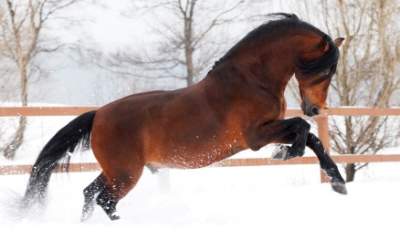 Winterizing your horse for the cold winter months will help ensure they stay healthy throughout a stressful winter season. The doctors at Mid-Rivers Equine Centre encourage the following:
Winterizing your horse for the cold winter months will help ensure they stay healthy throughout a stressful winter season. The doctors at Mid-Rivers Equine Centre encourage the following:
- Ensure the deworming program is current¬†‚ÄThe extra strain on a horse’s metabolic system during the winter can exacerbate problems associated with infestation.
- Have teeth checked, and if necessary, floated ‚ÄA horse’s metabolic rate increases during the cold winter months. Horses that cannot properly grind up their food will not extract all the nutritional value their food offers. This may result in a malnourished horse and the loss of needed body fat.
- Make sure all vaccines are up-to-date ‚ÄA common “winter” vaccine is Rhino/Flu. This vaccine provides protection against some (but not all) common respiratory tract infections. With regard to this vaccine, sometimes questions come up about the neurologic form of EHV-1. There is currently no vaccine which effectively provides EHV-1 protection.
- Provide plenty of water — Water is the number one defender against colic. During the winter, horses have a tendency to reduce their water intake; this is why we can see an uptick in colics as the temperatures drop. If a horse is not drinking, try adding warm water to the bucket.